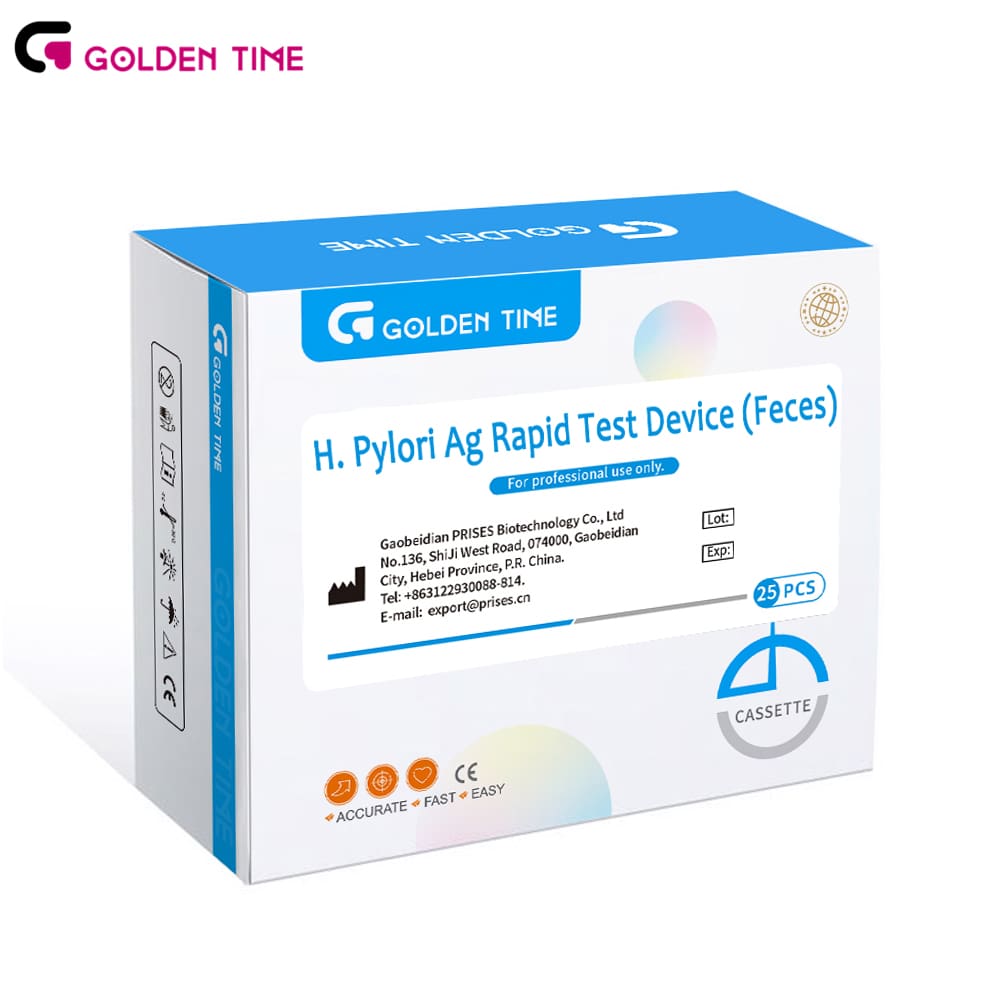Oct . 19, 2024 09:49 Back to list
stool antigen test h pylori
Understanding the Stool Antigen Test for Helicobacter pylori
Helicobacter pylori (H. pylori) is a type of bacteria that infects the stomach lining and is known to cause various gastrointestinal conditions, including peptic ulcers and gastritis. It is important for healthcare providers to accurately diagnose H. pylori infections to ensure appropriate treatment. One of the most common methods for diagnosing this infection is the stool antigen test.
What is the Stool Antigen Test?
The stool antigen test is a non-invasive diagnostic tool used to detect H. pylori antigens in a patient's stool sample. It operates on the principle that when the bacteria are present in the stomach, they produce specific antigens that can be shed into the digestive system and subsequently excreted in the stool. This test can be performed in a physician's office or a laboratory, and results are usually available within a day or two.
How is the Test Conducted?
The stool antigen test is straightforward and typically involves the following steps
1. Sample Collection Patients are instructed to collect a stool sample, often using a special container provided by their healthcare provider. It is essential to ensure that the sample is free from contamination.
2. Laboratory Analysis The collected sample is sent to a laboratory, where it undergoes analysis to identify the presence of H. pylori antigens. Various methods, such as enzyme immunoassays, can be used to detect these antigens.
3. Result Interpretation A positive result indicates the presence of H. pylori infection, while a negative result suggests that the infection is either absent or that the bacteria are not actively shedding antigens into the stool.
Benefits of the Stool Antigen Test
The stool antigen test offers several advantages over other diagnostic methods, such as endoscopy and the urea breath test
1. Non-Invasive The stool antigen test is non-invasive and does not require any special preparation or sedation, making it a more comfortable option for patients.
stool antigen test h pylori

3. Cost-Effective Compared to other methods, the stool test is generally less expensive, making it an economical choice for both healthcare providers and patients.
4. Monitoring Treatment Efficacy The stool antigen test can be used to confirm eradication after treatment, providing a reliable check on the effectiveness of therapy.
Limitations and Considerations
While the stool antigen test is a valuable diagnostic tool, there are several limitations and considerations to keep in mind
1. False-Negative Results The test may yield false-negative results if the patient has recently taken antibiotics, proton pump inhibitors, or bismuth preparations, which can suppress H. pylori and reduce the detection of antigens.
2. Timing of Test It is recommended to wait at least four weeks after treatment before retesting to ensure that the antigens are no longer present if the infection has been successfully eradicated.
3. Symptom Correlation A positive test result should be correlated with the patient's symptoms and clinical history, as some individuals may harbor the bacteria without exhibiting symptoms of disease.
4. Confirmatory Testing In certain cases, especially when diagnosis is critically required, confirmatory tests such as endoscopy with biopsy may still be necessary.
Conclusion
The stool antigen test for H. pylori is a vital tool in the diagnosis and management of gastric infections. Its non-invasive nature, ease of use, and cost-effectiveness make it the preferred choice in many clinical settings. Understanding the strengths and limitations of this test allows both patients and healthcare providers to navigate gastrointestinal health issues more effectively. As research continues to evolve in the field of gastroenterology, the stool antigen test will likely remain an integral part of the diagnostic toolkit for H. pylori and related disorders.
-
Accurate HCG Pregnancy Test Strips | Fast Home Use Kit
NewsJul.31,2025
-
Reliable Early Pregnancy Test Kit Supplier - Multi Plastic Cassette Options
NewsJul.30,2025
-
Transferrin Rapid Test Cassette – Reliable Tumor Marker Detection
NewsJul.29,2025
-
Accurate Follicle Stimulating Hormone Test Kit | Rapid Reliable Results
NewsJul.29,2025
-
High Accuracy LH Ovulation Test Kit - Digital Results & Wholesale Options
NewsJul.29,2025
-
HbsAg Blood Rapid Test Kit for Fast & Accurate Hepatitis B Detection
NewsJul.28,2025

